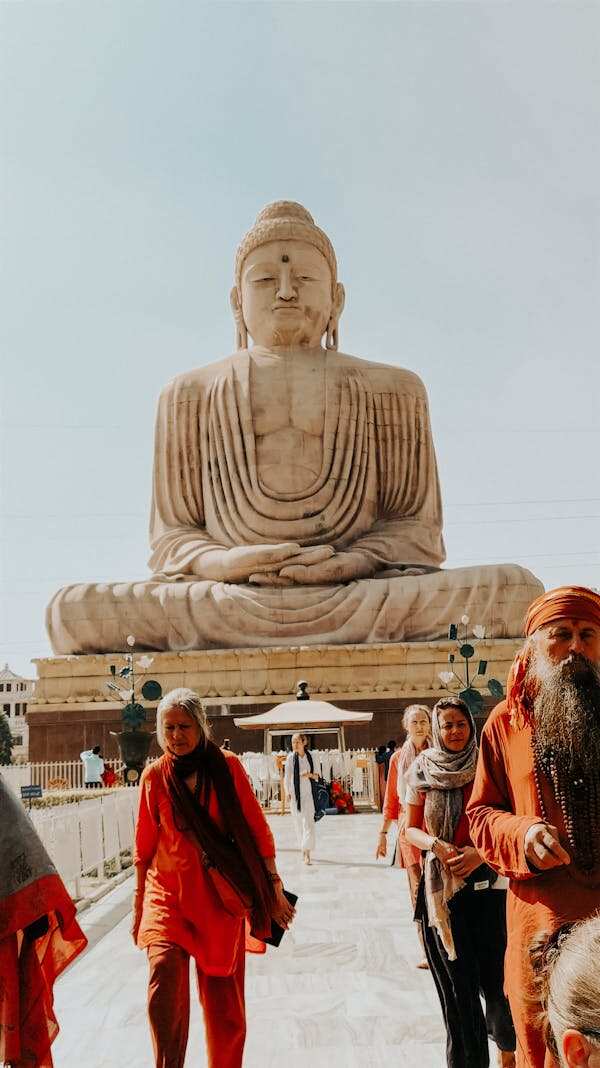The Rubik's cube has many followers, who often get together to compete, finds out Avril-Ann Braganza
I'm greeted by the click-click-click of Rubik's cubes being put in order as I enter the venue for the Polyhedra Open 2017. Whether it's eight-year-old kids or 30-year-old professionals, they're all bent over their cubes, practising their solves or helping others figure out their difficulties. At the end of the tournament, Pratik Poojary, one of the organisers, tells me that there were around 170 participants at the competition; 80 per cent in the 10-16 year age group. While there are 600 'cubers' (slang for Rubik's cube hobbyists) in Mumbai, "the World Cube Association (WCA) website has around 6,000 people, who have registered and participated in competitions across India", points out Poojary.
The India story
"Speedcubing started in India at a tournament held at IIT Kanpur in 2008 and gained traction in Mumbai in 2010 at VJTI's techno-management festival Technovanza, which hosted the Rubik's Cube Mumbai Open (RCMO)," he adds.
Most cubers attribute its popularity to Dharmesh Shahu, who pioneered speedcubing in Mumbai. Now an IT professional, Shahu first bought a Rubik's cube from a roadside stall and after failing repeatedly, sought help online.
After four months of practice, he decided to participate in the RCMO at VJTI in 2011 and won his first 3x3 event. A year later, he broke the record at a competition held at the Chennai Mathematical Institute, solving the 3x3 cube in 10.15 seconds. He then went on to break 22 national records and "became the first person in India to officially solve the cube in under 10 seconds (he did it in 9.92 seconds) in 2013 at the RCMO," says 26-year-old Shahu, the 2016 National Champion, who stopped participating as frequently in 2014, when he had to focus on his career. His success has encouraged many cubers to make their mark in the speedcubing community.
Seeing the lack of competitions in Mumbai, Shahu and his friends started organising public tournaments, beginning with Speed Cubing Mumbai Unlimited in 2011. "We also contacted WCA to appoint a delegate so that our competitions get official international recognition," says Shahu. Soon, the community started to grow, coming together for competitions and interacting in online groups.
Popular in Delhi, Mumbai, Hyderabad, Chennai, Pune, Jodhpur, Goa and Bangalore, 2016 saw 34 competitions taking place in India. "We're also trying to expand the idea in the east. Since I'm from Kolkata, I'm trying to make it big back home," says 28-year-old Shubhayan Kabir, a candidate delegate from the WCA, who works in Mumbai. Each competition has different categories or events including the standard 3x3, 2x2, 4x4, 5x5, 6x6, 7x7, 3X3 blindfolded as well as one handed and with the feet, megaminx, pyraminx, skewb and square-1.
Not as hard as it looks
While most cubers learn to solve the first two layers, most need help with the last layer. Experts are usually at hand and willing to share algorithms and their knowledge with those who are interested in speedcubing. Picking up speedcubing "can take about 2-3 hours, but like anything else it depends on each person and their grasping power," shares Somya Srivastava, another organiser at the Polyhedra Open 2017.
"There is no calculation involved. All you have to do is remember four simple formulae. If you practice the set of moves for even half a day, you can solve the cube at anytime," says Shantanu Joglekar, who started speedcubing seven years ago. "Speedcubing experts have 100 combinations in mind for just the last layer. They can plan ahead and can predict what's going to come up with every move they make, what the cube will look like and what they need to do to solve it," says Joglekar.
Speedcubing tends to be male-dominated. The number of children interested in cubing has steadily increased in the last few years. "So far, the youngest participant at a competition in Mumbai was a six-year-old, and the eldest was 75. The fastest moves to the next round," adds Srivastava.
National Championships
Only countries that have a sufficient cubing base and good organisation skills can hold the National Championships.
While speedcubing picked up in India in 2008, it was only in 2014 that the first National Championship was held here.
This year, the National Championship will be held in Pune from May 12-14, 2017.
Delegates are generally nominated and then selected by the World Cube Association based on knowledge, experience and capability.
![submenu-img]() Meet Gautam Adani’s ‘right hand’, used to work as teacher, he’s now Rs 1600000 crore…
Meet Gautam Adani’s ‘right hand’, used to work as teacher, he’s now Rs 1600000 crore…![submenu-img]() Meet actor who worked with Amitabh Bachchan, Aishwarya Rai, entered films because of a bus conductor, is now India's..
Meet actor who worked with Amitabh Bachchan, Aishwarya Rai, entered films because of a bus conductor, is now India's..![submenu-img]() Meet Bollywood star, who was a tourist guide, married 4 times, went bankrupt, his son died by suicide, then...
Meet Bollywood star, who was a tourist guide, married 4 times, went bankrupt, his son died by suicide, then...![submenu-img]() This actor made Sharmila Tagore forget her lines, once did film for Rs 100, could never be a superstar because..
This actor made Sharmila Tagore forget her lines, once did film for Rs 100, could never be a superstar because..![submenu-img]() Volkswagen Taigun GT Line, Taigun GT Plus launched in India, price starts at Rs 14.08 lakh
Volkswagen Taigun GT Line, Taigun GT Plus launched in India, price starts at Rs 14.08 lakh![submenu-img]() DNA Verified: Is CAA an anti-Muslim law? Centre terms news report as 'misleading'
DNA Verified: Is CAA an anti-Muslim law? Centre terms news report as 'misleading'![submenu-img]() DNA Verified: Lok Sabha Elections 2024 to be held on April 19? Know truth behind viral message
DNA Verified: Lok Sabha Elections 2024 to be held on April 19? Know truth behind viral message![submenu-img]() DNA Verified: Modi govt giving students free laptops under 'One Student One Laptop' scheme? Know truth here
DNA Verified: Modi govt giving students free laptops under 'One Student One Laptop' scheme? Know truth here![submenu-img]() DNA Verified: Shah Rukh Khan denies reports of his role in release of India's naval officers from Qatar
DNA Verified: Shah Rukh Khan denies reports of his role in release of India's naval officers from Qatar![submenu-img]() DNA Verified: Is govt providing Rs 1.6 lakh benefit to girls under PM Ladli Laxmi Yojana? Know truth
DNA Verified: Is govt providing Rs 1.6 lakh benefit to girls under PM Ladli Laxmi Yojana? Know truth![submenu-img]() Remember Abhishek Sharma? Hrithik Roshan's brother from Kaho Naa Pyaar Hai has become TV star, is married to..
Remember Abhishek Sharma? Hrithik Roshan's brother from Kaho Naa Pyaar Hai has become TV star, is married to..![submenu-img]() Remember Ali Haji? Aamir Khan, Kajol's son in Fanaa, who is now director, writer; here's how charming he looks now
Remember Ali Haji? Aamir Khan, Kajol's son in Fanaa, who is now director, writer; here's how charming he looks now![submenu-img]() Remember Sana Saeed? SRK's daughter in Kuch Kuch Hota Hai, here's how she looks after 26 years, she's dating..
Remember Sana Saeed? SRK's daughter in Kuch Kuch Hota Hai, here's how she looks after 26 years, she's dating..![submenu-img]() In pics: Rajinikanth, Kamal Haasan, Mani Ratnam, Suriya attend S Shankar's daughter Aishwarya's star-studded wedding
In pics: Rajinikanth, Kamal Haasan, Mani Ratnam, Suriya attend S Shankar's daughter Aishwarya's star-studded wedding![submenu-img]() In pics: Sanya Malhotra attends opening of school for neurodivergent individuals to mark World Autism Month
In pics: Sanya Malhotra attends opening of school for neurodivergent individuals to mark World Autism Month![submenu-img]() DNA Explainer: What is cloud seeding which is blamed for wreaking havoc in Dubai?
DNA Explainer: What is cloud seeding which is blamed for wreaking havoc in Dubai?![submenu-img]() DNA Explainer: What is Israel's Arrow-3 defence system used to intercept Iran's missile attack?
DNA Explainer: What is Israel's Arrow-3 defence system used to intercept Iran's missile attack?![submenu-img]() DNA Explainer: How Iranian projectiles failed to breach iron-clad Israeli air defence
DNA Explainer: How Iranian projectiles failed to breach iron-clad Israeli air defence![submenu-img]() DNA Explainer: What is India's stand amid Iran-Israel conflict?
DNA Explainer: What is India's stand amid Iran-Israel conflict?![submenu-img]() DNA Explainer: Why Iran attacked Israel with hundreds of drones, missiles
DNA Explainer: Why Iran attacked Israel with hundreds of drones, missiles![submenu-img]() Meet actor who worked with Amitabh Bachchan, Aishwarya Rai, entered films because of a bus conductor, is now India's..
Meet actor who worked with Amitabh Bachchan, Aishwarya Rai, entered films because of a bus conductor, is now India's..![submenu-img]() Meet Bollywood star, who was a tourist guide, married 4 times, went bankrupt, his son died by suicide, then...
Meet Bollywood star, who was a tourist guide, married 4 times, went bankrupt, his son died by suicide, then...![submenu-img]() This actor made Sharmila Tagore forget her lines, once did film for Rs 100, could never be a superstar because..
This actor made Sharmila Tagore forget her lines, once did film for Rs 100, could never be a superstar because..![submenu-img]() Mumtaz urges to lift ban on Pakistani artistes in Bollywood: ‘Woh log hum logon se...'
Mumtaz urges to lift ban on Pakistani artistes in Bollywood: ‘Woh log hum logon se...'![submenu-img]() Not Kiara Advani, but this actress was first choice opposite Shahid Kapoor in Kabir Singh, she rejected because...
Not Kiara Advani, but this actress was first choice opposite Shahid Kapoor in Kabir Singh, she rejected because...![submenu-img]() IPL 2024: Yashasvi Jaiswal, Sandeep Sharma guide Rajasthan Royals to 9-wicket win over Mumbai Indians
IPL 2024: Yashasvi Jaiswal, Sandeep Sharma guide Rajasthan Royals to 9-wicket win over Mumbai Indians![submenu-img]() IPL 2024: How can RCB still qualify for playoffs after 1-run loss against KKR?
IPL 2024: How can RCB still qualify for playoffs after 1-run loss against KKR?![submenu-img]() CSK vs LSG, IPL 2024: Predicted playing XI, live streaming details, weather and pitch report
CSK vs LSG, IPL 2024: Predicted playing XI, live streaming details, weather and pitch report![submenu-img]() RR vs MI: Yuzvendra Chahal scripts history, becomes first bowler to achieve this massive milestone in IPL
RR vs MI: Yuzvendra Chahal scripts history, becomes first bowler to achieve this massive milestone in IPL![submenu-img]() 'Yeh toh second tier ki bhi team nhi': Ramiz Raja slams Babar Azam and co. after 3rd T20I loss vs New Zealand
'Yeh toh second tier ki bhi team nhi': Ramiz Raja slams Babar Azam and co. after 3rd T20I loss vs New Zealand![submenu-img]() Mukesh Ambani's son Anant Ambani likely to get married to Radhika Merchant in July at…
Mukesh Ambani's son Anant Ambani likely to get married to Radhika Merchant in July at…![submenu-img]() India's most expensive wedding costs more than weddings of Isha Ambani, Akash Ambani, total money spent was...
India's most expensive wedding costs more than weddings of Isha Ambani, Akash Ambani, total money spent was...![submenu-img]() Meet Indian genius who lost his father at 12, studied at Cambridge, took Rs 1 salary, he is called 'architect of...'
Meet Indian genius who lost his father at 12, studied at Cambridge, took Rs 1 salary, he is called 'architect of...'![submenu-img]() Earth Day 2024: Google Doodle features aerial photos of planet's natural beauty, biodiversity
Earth Day 2024: Google Doodle features aerial photos of planet's natural beauty, biodiversity![submenu-img]() Meet India's first billionaire, much richer than Mukesh Ambani, Adani, Ratan Tata, but was called miser due to...
Meet India's first billionaire, much richer than Mukesh Ambani, Adani, Ratan Tata, but was called miser due to...






































)




)
)
)
)
)
)